Astronomy
-
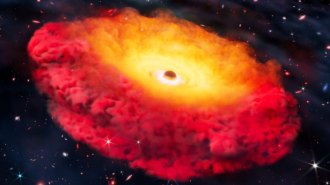 Astronomy
AstronomyThe oldest known black hole formed more than 13.3 billion years ago
The Webb telescope found that a far-off little red dot is the oldest known black hole, shrouded by gas that could help explain the ruby color.
-
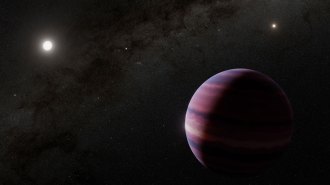 Planetary Science
Planetary ScienceA giant planet may orbit our closest sunlike neighbor
Alpha Centauri A, four light-years from Earth, may host a gas giant. If confirmed, no Earthlike planets orbit in the star’s habitable zone.
- Astronomy
Seven superclouds sit just beyond the solar system
The superclouds probably produce star-forming clouds of gas, since most nearby stellar nurseries are located within the giants.
-
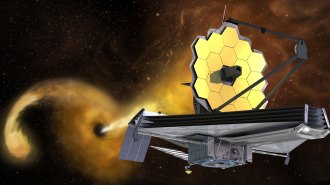 Astronomy
AstronomyThe Webb space telescope spies its first black holes snacking on stars
These star-shredding black holes sit within dusty galaxies that block many telescopes’ views. That’s not an issue for JWST.
-
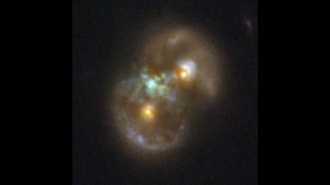 Astronomy
AstronomyTwo colliding galaxies may have birthed this black hole
An infinity symbol–shaped galaxy hosts an active supermassive black hole. The growing giant may have come from the aftermath of a galactic smashup.
-
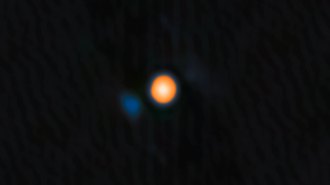 Astronomy
AstronomyBetelgeuse’s companion star revealed in new images
Revealed by advanced imaging, the long-sought "Betelbuddy" is much smaller and fainter than Betelgeuse and orbits within the supergiant’s atmosphere.
-
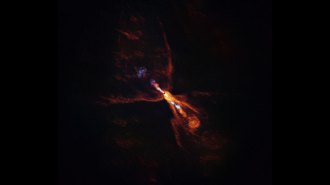 Planetary Science
Planetary ScienceThis star offers the earliest peek at the birth of a planetary system like ours
A young sunlike star called HOPS 315 seems to host a swirling disk of gas giving rise to minerals that kick-start the planet formation process.
-
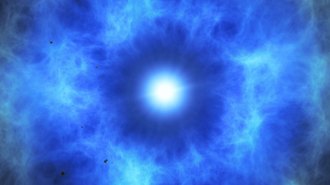 Space
SpaceIn a first, an image shows a dying star exploded twice to become a supernova
The image offers the first evidence for a previously unconfirmed origin story of type 1a supernovas.
-
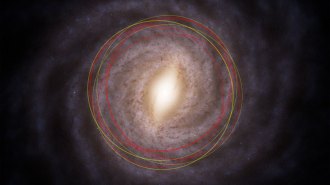 Space
SpaceA newly discovered interstellar object might predate the solar system
3I/ATLAS might be over 7 billion years old, a new study reports, which would make it the oldest comet known. But experts caution we need more data.
By Celina Zhao -
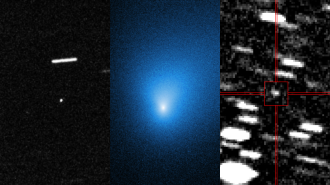 Space
SpaceA third visitor from another star is hurtling through the solar system
Scientists have found a new interstellar object whizzing toward the sun.
By Celina Zhao -
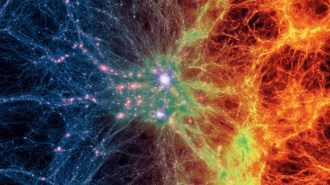 Astronomy
AstronomyNearly half of the universe’s ordinary matter was uncharted, until now
Two studies fill in gaps about the cosmos’s ordinary matter. One maps it all, even the “missing matter.” The other details one of its hiding spots.
-
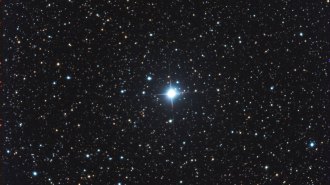 Astronomy
AstronomyA rare chance to see two exploding stars is happening in the southern sky
Exploding stars V462 Lupi and V572 Velorum are best seen from the Southern Hemisphere. One has been spotted from the United States.